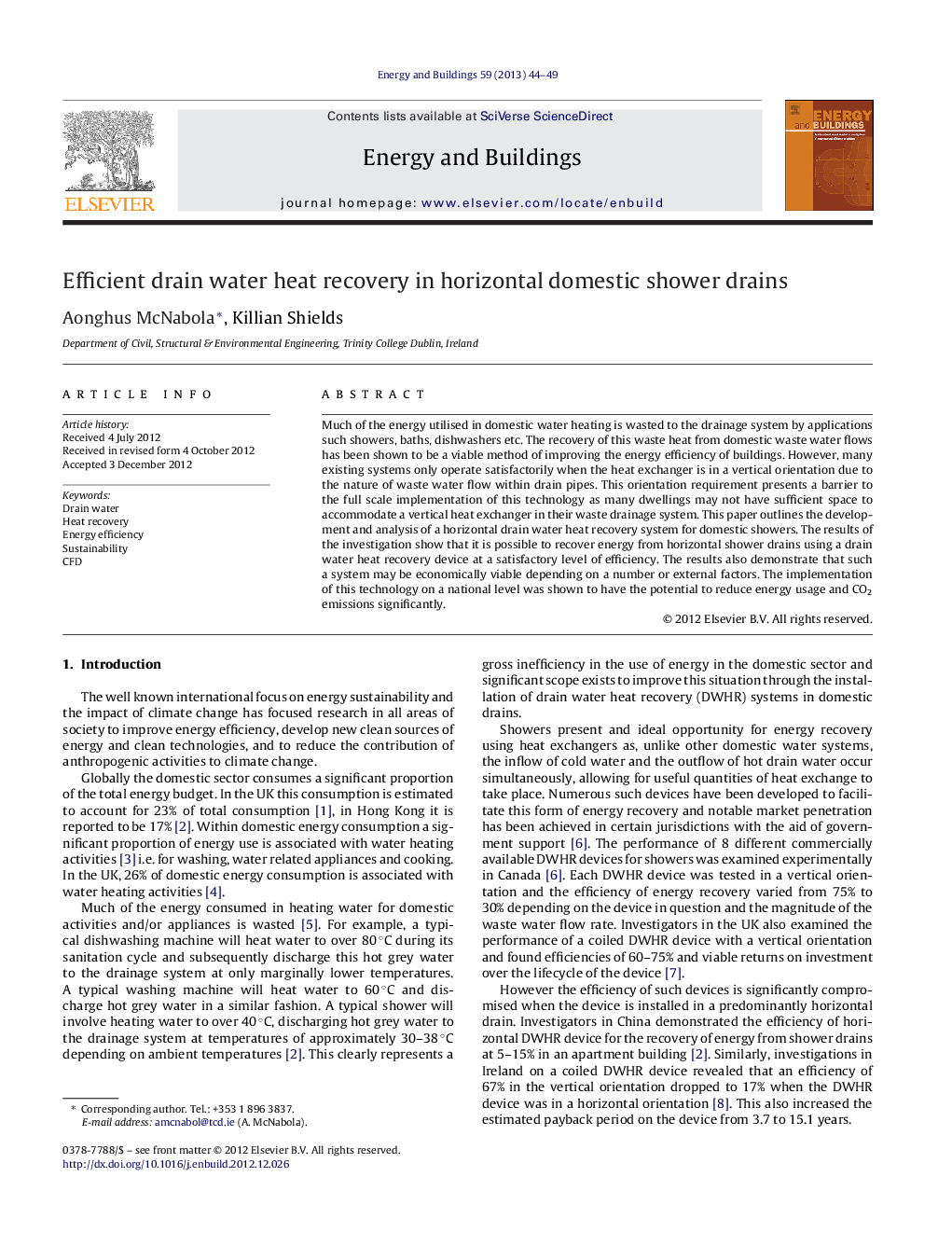| Article ID | Journal | Published Year | Pages | File Type |
|---|---|---|---|---|
| 263484 | Energy and Buildings | 2013 | 6 Pages |
Much of the energy utilised in domestic water heating is wasted to the drainage system by applications such showers, baths, dishwashers etc. The recovery of this waste heat from domestic waste water flows has been shown to be a viable method of improving the energy efficiency of buildings. However, many existing systems only operate satisfactorily when the heat exchanger is in a vertical orientation due to the nature of waste water flow within drain pipes. This orientation requirement presents a barrier to the full scale implementation of this technology as many dwellings may not have sufficient space to accommodate a vertical heat exchanger in their waste drainage system. This paper outlines the development and analysis of a horizontal drain water heat recovery system for domestic showers. The results of the investigation show that it is possible to recover energy from horizontal shower drains using a drain water heat recovery device at a satisfactory level of efficiency. The results also demonstrate that such a system may be economically viable depending on a number or external factors. The implementation of this technology on a national level was shown to have the potential to reduce energy usage and CO2 emissions significantly.
► A drain water heat recovery device was developed for horizontal showers drains. ► Efficiencies of over 50% were found to be obtainable in recovering waste heat. ► The DWHR unit was found to be economically viable depending on external factors. ► The DWHR unit was found to have the potential to reduce energy use and CO2 emission.
